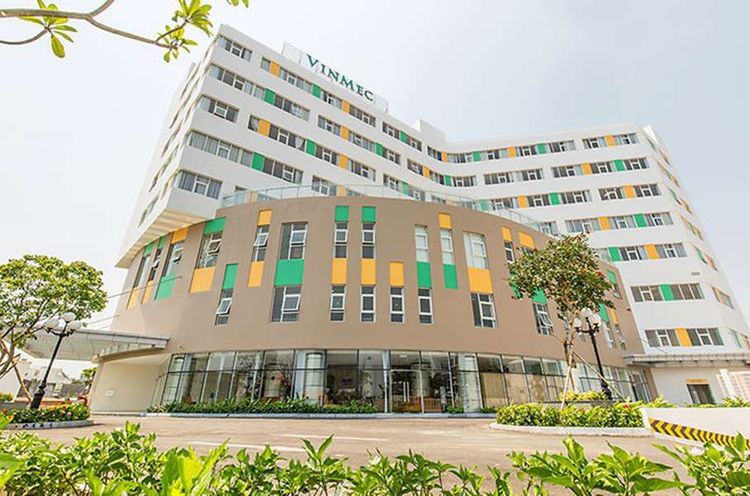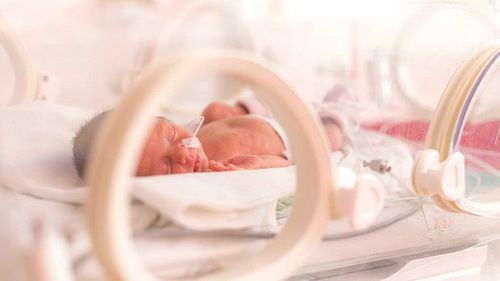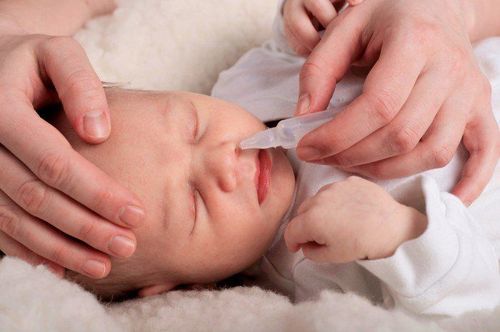This is an automatically translated article.
The article is professionally consulted by Master, Doctor Phan Thi Cam Van - Neonatologist - Department of Pediatrics - Neonatology - Vinmec Danang International General Hospital. He has 07 years of experience as a Resident Doctor and a Pediatrician - Neonatal Doctor at Hue Central Hospital and Hue University Hospital of Medicine and Pharmacy. In particular, he has strengths in newborn care and treatment, neonatal resuscitation, respiratory, digestive and infectious diseases.Neonatal acute respiratory distress syndrome, also known as endocarditis, is the most common condition in premature infants. The disease can leave many dangerous complications for children later, even more dangerous, kill the child's life if not detected and treated early.
1. What is the inner membrane? Is it similar to acute respiratory failure?
Inner membrane disease, also known as acute respiratory failure in premature babies, is a condition in which the lungs of premature babies are not really mature, the surfactant will not be complete. When this substance is lacking, the alveoli will collapse, leading to the phenomenon of plasma overflowing into the alveoli, the fibrin substance of the plasma is deposited inside the alveoli and bronchioles, forming a membrane, called the membrane. in. This membrane impedes the air circulation and oxygen exchange, at this time CO2 from the alveoli through the capillaries leads to acute respiratory failure in children and rapid death.
2. Risk of acute respiratory failure in premature infants
Acute respiratory failure in premature babies usually appears a few minutes to two hours after birth, usually manifests as severe respiratory distress syndrome such as shortness of breath, rapid shallow breathing, breathing rate over 60 times/minute; the intercostal spaces, the depression on the sternum retracted, the wings of the nose rose and fell, the whole body was pale; Oxygen does not help. In mild form and with the right treatment, the child can get better after 72 hours, the symptoms also gradually decrease.
Causes of acute respiratory failure in children are:
Premature babies under 28 weeks, the incidence rate is 50-60%, especially babies weighing less than 1,000g or twins. Children with a number of central nervous system injuries such as: encephalitis, meningitis, traumatic brain injury, cerebral hemorrhage, bronchitis, pneumonia, blocked posterior nostrils or obstacles in the airways breathing such as sputum, milk, ... Mother has bleeding before birth, baby has hypothermia. If the mother gives birth by cesarean section without going into labor, it is also the cause of respiratory failure in the baby due to the release of hormones that stimulate the production and release of surfactant, leading to increased reabsorption of lung fluid through the lymphatic system. lung. During labor, the mother has a long labor, hemorrhagic, the fetus has an acute failure or is born with asphyxia. During pregnancy, the mother has diabetes or is being treated for a certain disease with long-term corticosteroids. The disease can be caused by genetic factors, which means that in the family, some women born with endometrial disease have a high risk of having children with this disease in the next birth.

Suy hô hấp cấp ở trẻ sinh non thường xuất hiện vài phút đến hai giờ sau khi chào đời
3. Complications of respiratory failure in premature babies
Respiratory failure in premature babies can lead to dangerous complications, with long-term effects on the baby's normal development. In some cases, this condition can be life-threatening if not treated promptly. In addition, there are some complications such as:
Blindness of the eyes Blood infections Hypoglycemia Formation of blood clots in the baby's body Mental retardation Accumulation of air around the lungs and heart Brain bleeding, lack of oxygen brain Bronchopulmonary dysplasia Pneumonia, pulmonary bleeding. Severe respiratory failure can also lead to kidney failure and other organ failure. Depending on the condition of the disease, the complications encountered in each child will be different. Therefore, you should consult your doctor to have the best treatment solution for the complications that your baby is experiencing.
4. Measures to prevent acute respiratory failure in premature babies
In order to prevent infants from having severe respiratory failure, it is important to:
During pregnancy, pregnant women must ensure their health, have appropriate nutrition, activities and labor. Regular prenatal check-ups for good care advice, early detection of risks to minimize preterm birth, low birth weight babies. When giving birth, women must go to a medical facility, absolutely not give birth at home, but need to be assisted by a midwife or a specialist doctor. After giving birth, mothers and caregivers need to know how to monitor their babies and detect abnormalities for timely handling. Pregnant women who are at risk such as having to have a cesarean section, have a long labor, have bleeding, have multiple pregnancies, have diabetes, etc., need to be examined, managed and closely monitored by specialist doctors. for timely intervention.
5. Surfactant pump in the treatment of neonatal respiratory failure at Vinmec Nha Trang

Hiện nay, tại Vinmec Nha Trang có thực hiện kỹ thuật Bơm Surfactant trong điều trị suy hô hấp sơ sinh
Acute respiratory failure in premature babies, also known as endocardial disease, is a common disease in the neonatal period, especially in premature babies. The reason is due to lack of active ingredient Surfactant. The use of Surfactant is both preventive and therapeutic, helping to improve children's lung function and reduce complications of respiratory failure.
Currently, at Vinmec Nha Trang, the Surfactant Pump technique is performed in the treatment of neonatal respiratory failure with a clear and complete implementation process, taking the benefit and safety of the patient first. Medicines are preserved with strict procedures to ensure the use process.
This method applies to neonatal patients with the diagnosis: Endometrial disease, preterm infants, weight ≥ 1500g, pulmonary hemorrhage, severe pneumonia.
Clinical benefit of Surfactant therapy in improving pulmonary ventilation; enhance blood oxygenation; reduce the frequency of air leaks (complications with pneumothorax, pneumothorax...); reduce mortality and morbidity rates for children; reduce the rate of severe disability.
Surfactant pumping technique will be difficult to perform if the general standard of care is not of high quality. Vinmec Nha Trang has met strict criteria to apply Surfactant therapy in the treatment of respiratory failure in infants, including a full range of support facilities and a team of doctors:
Master. Dr. Nguyen Thanh Hung: Has many years of experience working in the field of General Pediatrics and Neonatology. The doctor has extensive experience in examination and treatment of pediatric respiratory diseases. Currently, the doctor is the Head of the Department of Pediatrics - Neonatology - Vinmec Nha Trang International General Hospital (Khanh Hoa). Master, Doctor Ngo Thi To Nga : Many years working in the field of General Pediatrics and Neonatology, especially strong in Resuscitation, Pediatric Emergency, Neonatal Resuscitation,.. Master, Doctor Doctor Doan Ngoc Quynh Tram: The doctor has a lot of experience in the field of Pediatrics, especially in resuscitation and treatment of neonatal diseases, respiratory and digestive diseases in children. Master, Doctor Nguyen Hoang The Nhan: A person with extensive experience in the field of pediatrics, especially in resuscitation, respiratory and digestive pathology in children and neonates. Master, Doctor Dang Huy Toan: Has many years of experience in Pediatrics and Neonatology, especially in pediatric respiratory diseases.
Please dial HOTLINE for more information or register for an appointment HERE. Download MyVinmec app to make appointments faster and to manage your bookings easily.













